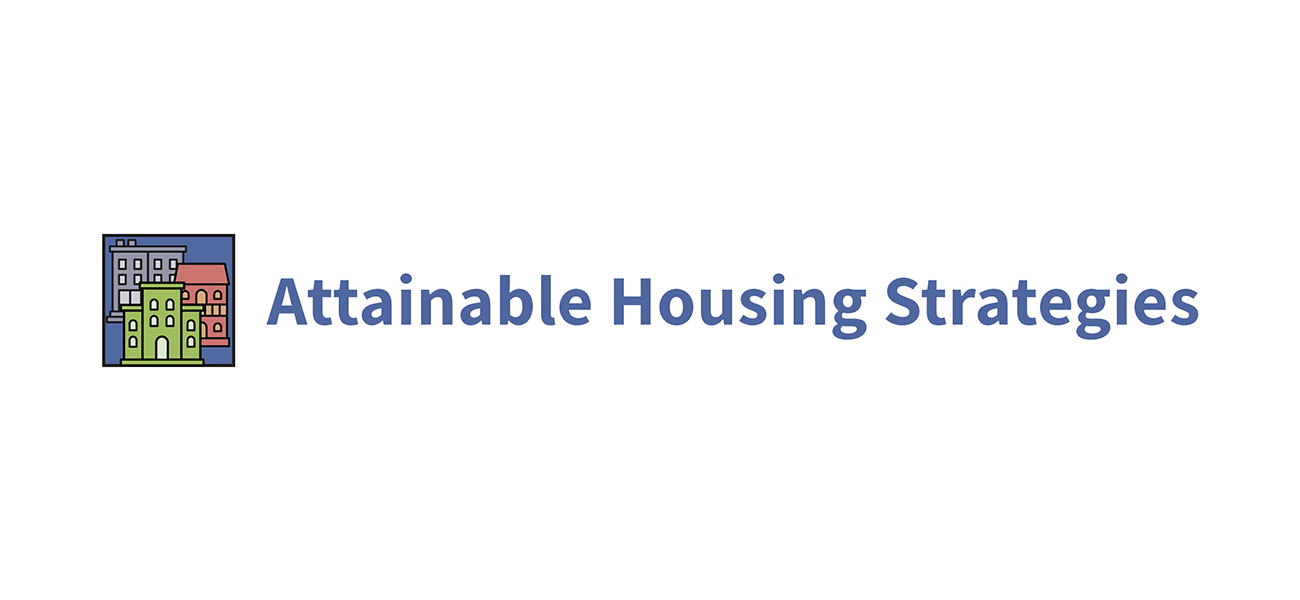Planning Board votes 5-0 to recommend allowing more types of homes to be built countywide; sends proposal to the County Council for review and approval
WHEATON, Md. – In a historic move to address Montgomery County’s housing crisis, the Montgomery County Planning Board, part of The Maryland-National Capital Park and Planning Commission (M‑NCPPC), voted unanimously today to approve recommendations developed by the Montgomery County Planning Department, also part of The M-NCPPC, that give property owners the option to build a wider range of housing types in areas of the county that for decades have only allowed one single-family detached home per lot. The Montgomery County Council will review the proposal and decide whether to proceed with new legislation to implement the recommendations.
The Planning Board’s vote transmits Montgomery Planning’s Attainable Housing Strategies report to the County Council to consider a set of zoning modifications and other policy changes that would still allow for single-family detached homes, but would also permit duplexes, triplexes, townhomes, and small apartment buildings in more residential areas of the county. The zoning changes are an effort to help current and future Montgomery County residents find housing that fits their needs and enable more diverse, better integrated, and economically sustainable neighborhoods.
“The time has come for Montgomery County to break free from outdated zoning that has constrained the housing supply, led to skyrocketing real estate prices, and has forced more of the county’s middle-income population to search elsewhere for housing,” said Planning Board Chair Artie Harris. “The county has little open land left to build on and almost half of the county’s housing stock is composed of detached housing. People of all ages and income levels need more choices to bridge the gap between high-rise apartment buildings and single-family detached houses. We can no longer afford to devote so much land to so few people.” Watch Chair Harris’ remarks at the dais following the Planning Board’s vote.
Attainable Housing Strategies recommends zoning modifications that would allow for housing types that include Missing Middle Housing, which refers to a range of buildings that are compatible in scale, form and construction with single-family homes, but offer multiple housing units, and a variety of apartments or flats that are at least three stories. The recommendations include a requirement for small scale attainable housing typologies (duplexes, triplexes, and quadplexes) to conform with a Pattern Book. The Pattern Book will provide clear and objective form-based standards and help facilitate the construction of duplexes, triplexes, and quadplexes following the same setbacks, lot coverage, and height restrictions as a single-family detached house.
Small Scale Attainable Housing
Small scale attainable housing is what would be found in single-family neighborhoods. It refers to multi-unit buildings such as duplexes, triplexes, and quadplexes that maintain the general size and scale of single-family homes in existing neighborhoods.
Medium Scale Attainable Housing
The medium scale recommendations focus on housing along growth corridors in the county and include three- to four-story stacked flats, small apartment buildings, and townhouses. The Planning Board recommends creating the Attainable Housing Optional Method of Development that limits the size of these housing types to promote a more attainable price than what existing new developments generally provide.
Large Scale Attainable Housing
Large scale attainable housing includes incorporating mixed-use, live/work, and apartment buildings that are four or more stories in height along growth corridors in the county through the master plan process or the creation of a new zone.
About the Attainable Housing Strategies Initiative
The Attainable Housing Strategies initiative launched at the direction of the Montgomery County Council on March 4, 2021, to “consider zoning reforms that would allow greater opportunities for Missing Middle housing in Montgomery County.”
Montgomery Planning staff reviewed zoning and planning policies and engaged the community to prepare a comprehensive strategy on how the county can enable and encourage the construction or renovation of more diverse housing types beyond the typical detached single-family home. The initiative is one part of an ongoing, multi-year effort by Montgomery Planning, the Planning Board, and the county to develop long-term strategies to address the housing shortage and implement Thrive Montgomery 2050, which states that access to safe, affordable, and accessible housing is a basic human right and prioritizes expansion and diversification of our housing stock as an essential step toward reducing racial and socioeconomic inequality.
“The need to relax single-family zoning is an equity issue,” said Montgomery Planning Director Jason Sartori. “Montgomery County supports strong, inclusive communities and its zoning laws need to align with its commitment to fostering the creation of communities where not just the most fortunate can own a home and build wealth. These recommendations not only outline different housing types to add to our housing stock but create options and opportunities for households of various incomes to attain housing that is suitable to their needs.”
Resources and Next Steps
Visit the Attainable Housing Strategies website to learn more about the initiative, sign up for its e-letter, watch a YouTube video explainer, download project explainer documents in multiple languages, fill out a comment form, view previous presentations before the Planning Board, and more. Individuals are also invited to watch the recordings of the Planning Board’s public listening session that occurred in the afternoon and the evening of March 21, 2024.
Read the Planning Board’s Attainable Housing Strategies Final Report that was posted for today’s Planning Board meeting. The report includes details about Montgomery Planning and the Planning Board’s comprehensive community engagement since 2021 to gather input from residents, property owners, and other stakeholders that informed the recommendations. The final report will be transmitted to the Montgomery County Council for review and Planning staff members are scheduled to brief the Council’s Planning, Housing, and Parks (PHP) Committee on June 24. The committee will hold work sessions on the recommendations this summer.
